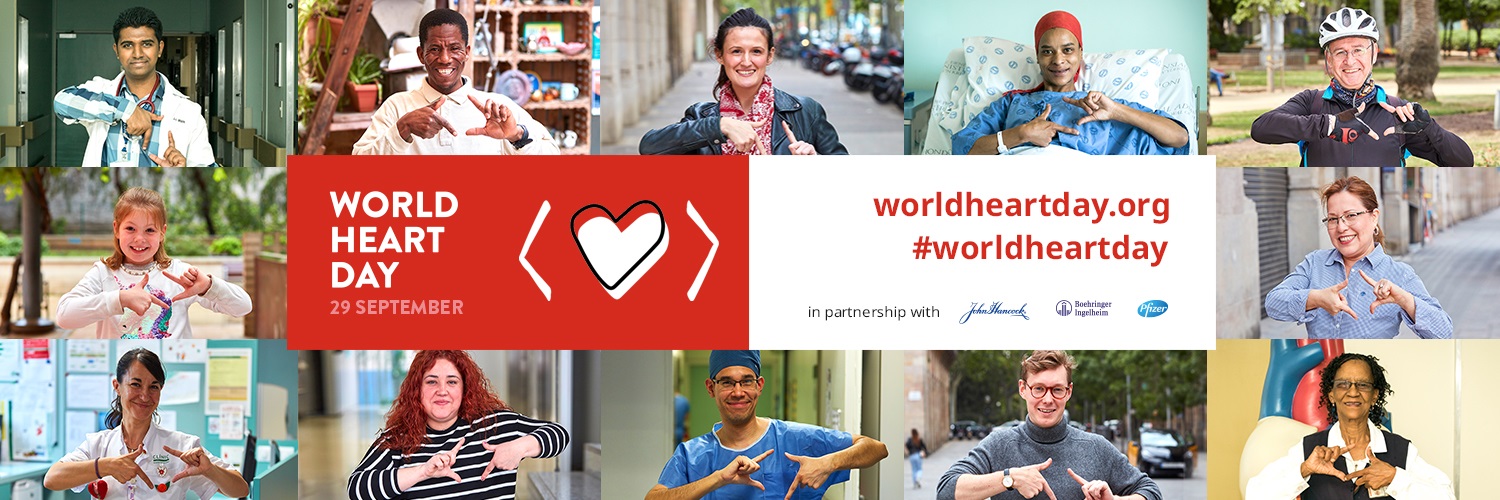What is World Heart Day?
Tagged as the world's and the World Heart Federation's biggest awareness-raising platform for cardiovascular disease, World Heart Day is celebrated every year on 29 September. And this year, everyone is called upon to become Heart Heroes and making the following promises:
- A promise to our families to cook and eat more healthily
- A promise to our children to exercise more and help them to be more active, to say no to smoking and help our loved ones to stop
- A promise as a healthcare professional to help patients give up smoking and lower their cholesterol
- A promise as a policymaker to support policies that promote healthy hearts
- A promise as an employee to invest in heart-healthy workplaces
With the theme "My Heart, Your Heart", this year's World Heart Day aims to create a global community of Heart Heroes, people from all walks of life who are acting now to live longer, better, heart-healthy lives by making the promise.
Created by the World Heart Federation, World Heart Day seeks to educate people around the world about CVD, as well as heart disease and stroke, which are the world’s leading cause of death claiming 17.9 million lives each year. The event also seeks to highlight the actions that individuals can take to prevent and control CVD.
World Heart Day aims to drive action to educate people that by controlling risk factors such as tobacco use, unhealthy diet and physical inactivity, at least 80% of premature deaths from heart disease and stroke could be avoided.
World Heart Day is a global campaign during which individuals, families, communities, and governments around the world participate in activities to take charge of their heart health and that of others. Through this campaign, the World Heart Federation unites people from all countries and backgrounds in the fight against the CVD burden and inspires and drives international action to encourage heart-healthy living across the world.
What is CVD?
CVD or cardiovascular disease is the world’s number one killer today. Cardiovascular disease generally refers to conditions that involve narrowed or blocked blood vessels that can lead to heart attack, chest pain (angina) or stroke. Other heart conditions, such as those that affect your heart's muscle, valves or rhythm, also are considered forms of heart disease.
But it doesn’t have to be that way. By just making small changes to our lives, we can reduce our risk of heart disease and stroke, as well as improving our quality of life and setting a good example for the next generation. It’s about making a commitment to yourself and the people you care about and asking: "what can I do right now to look after my heart and your heart?"
To learn more, visit World Heart Federations website here.

|
Do you have a natural health & wellness business? |










